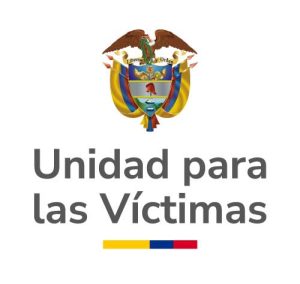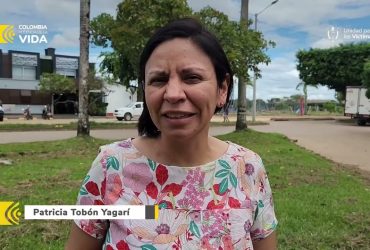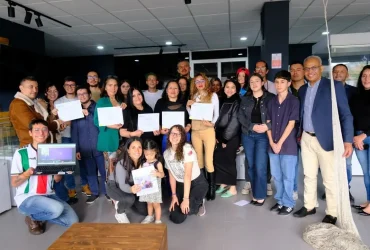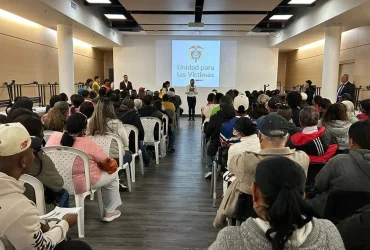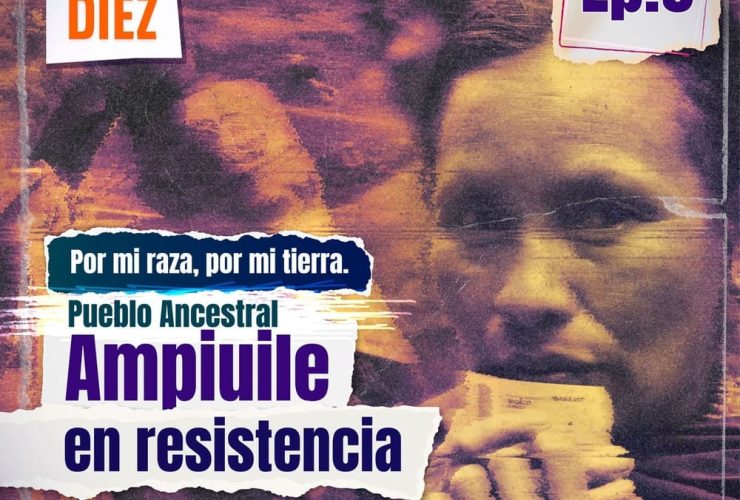By Yuli Urquina Macias
With the promise of going back, Jazmani Arboleda Preciado started his journey to Tolima, firmly hoping to learn something productive that would benefit his community.
Inspired by the daily life of his Afro family known as Rio Tablon Dulce in the Colombian South Pacific, this young member of the LGBTI community who, since the age of seven has felt as a leader of his people, delivered his expectations to fate; that is how he returned to his hometown, seeking to tell and teach what he learned far from home.
He wasn’t even 18 years old when he embarked on a voyage that would take him 80 kilometers by river, an hour and a half by canoe, to Tumaco, in Nariño, and then to the land of sanjuanero[1], seeking to pass some exams that would grant him a scholarship for technical studies in agroecology.
“Since I was a child, I wanted to study business administration, I had already finished elementary school, it was not easy for me to study and, suddenly, a proposal arrived. I had several setbacks, I didn’t have a high school degree, I wasn’t 18 years old, I got sick, so, I had to stay there studying agroecology anyway I could. It has been a blessing, because thanks to it I was able to help many people and be a teacher. Now I enjoy it ”, comments this young entrepreneur.
Tablón Dulce es un Consejo Comunitario fundado por Juan Ramón Preciado hace más de 100 años. Es un territorio de paz rodeado de quebradas, tranquilo, organizado y queda a 50 minutos en lancha rápida desde Tumaco; “somos 350 familias en campo poblado y en territorio tenemos algo más de 2.100 hectáreas con cultivos e infraestructura, somos muy bendecidos pues se nos da de todo: plátano, cacao, coco, frutales, cítricos, maderables”, cuenta Jazmani.
Tablon Dulce is a Community Council founded by Juan Ramon Preciado more than 100 years ago. It is a peaceful territory surrounded by streams, it is quiet, organized and it’s located 50 minutes by speedboat from Tumaco. “We are 350 families in populated fields, and within the territory, we have more than 2,100 hectares with crops and infrastructure. We are very blessed because we can grow everything: plantains, cocoa, coconut, fruit trees, citrus, timber”, says Jazmani.
Self-identity
In 1993, a law that sought to recognize collective property for black communities gave them the figure of Community Councils and, in this way, they were able to delimit and administer a specific area for their cultural and natural identity preservation, as well as to have legal recognition and be able to resolve internal conflicts.
“At the age of 12 I began to exercise a leadership process with the youth group. When the health brigades arrived and without my mother’s permission, I even participated in the cleaning of the town and the streams. I was also aware of helping with the school activities. This support for the community gave me the chance to be the leader and legal representative of the Community Council”.
36 years old and aware of his role in the community, Jazmani acknowledges the need to spread and preserve the African culture that represents them, their beliefs, special holidays, dances and typical foods: the tapao, the chigualo, the last night, the wake, the festivities, the midwives’ tradition, healers, medicinal plants and many others. Over time, he realized the fact he belongs to the LGBTI community hasn’t limited his leadership, because sexual orientation and diverse gender identity don’t prevent anyone from this community to display capabilities and intelligence, since they can take on challenges with responsibility, without prejudice and full of courage.
Other influences
The knowledge, maturity and attachment to his native land allowed him to assimilate a reality that was happening and became more palpable, something was happening with the seeds and the soil, the peach palm no longer grew spontaneously, and the town’s court didn’t represent the same joy of those rainy afternoons of childhood playing soccer. Rio Tabla Dulce began to have armed groups outside the law and the Armed Forces as neighbors.
Despite its ancestral, social and environmental wealth, in 2014, this ethnic territory was included in the Abandoned Properties and Territories Single Registry due to the internal armed conflict, an action carried out by the Ministry of the Interior because of forced displacement, crops for illicit use by third parties, collective territorial rights crimes, and as if it wasn’t enough, the fumigation of those same crops.
“Rio Tabla Dulce has organizational needs for education, training and productive support. We have had many consequences due to glyphosate. I am part of a territory hurt by groups that exercise control. We are vulnerable to the situations we are experiencing, hence the dream of being able to move them forward, to help my community and be able to do things for their benefit”, says this young dreamer.
In the words of Jazmani, a true leader is recognized by a field of action that has no limits, whose motivation is people with dreams. His mother’ advice, as well as the social service through missions that he undertook through inlets and turbulent roads with the church’s help and an experience developed with an international program called Children’s Villages, have motivated him to continue fighting without fear, being aware that the most important thing is the effects his actions represent for the community.
“I think a leader shouldn’t be afraid, it has to be a capable person, with interests, dreams, desires; it must be a committed person, and know that leadership is to be in a position that allows to help others. Fear doesn’t work, it doesn’t let you move forward or support communities. It is difficult because of the intimidation, but what strengthens you is that you’re fighting for a community that needs you”.
Serving a community, an act of disobedience
From the classrooms to his walkabouts around the community, Jazmani talks about defeating the cultural patterns of machismo, ignoring the things that harm you and strengthening oneself: “You can’t look down on yourselves, that can be one of my weaknesses or strengths. Sometimes we believe that because we are from the LGBTI community we are worthless. That sets barriers up, we must be free and let everyone see what we are and what we represent for the community. I’m autonomous and I make decisions without imposing on anyone. Respect is earned, it’s a pretty tough fight.”
The return of Jazmani and many others to share knowledge acquired abroad has had positive effects. There’s a communications group documenting processes that are done, the productive projects, the daily activities, home gardens. Results are tangible in the cultural events that remain, the organizational process with the communities and the young people or children who have been able to study and improve.
A new path
In 2016, the Community council began its Collective Reparation Process with the Unit for the Victims. This happened due to the effects on the territory, the culture, the environment, and the government forms in the context of the conflict. There have been three meetings since that starting point, which aims to give State institutions the preparation to get to know the community, provide tools and solutions.
“It takes more socialization, empowerment, more self-love. In the Human Rights framework we’re all people, we must respect each other to have a fair and transparent society, let us follow the example of Jesus Christ and love each other; a cordial treatment doesn’t make us less than anyone. The violent people took the wrong paths, but it is never too late for repentance, they are people who can help this country, this territory and be free.”
Precisely, this reminds us of a fragment of the National Center for Historical Memory’s “Basta ya” collection: “the re-emerging capacity of the Afro-descendant population since slavery, enables them to have a great capacity for agency. From their cultural heritage memories recreation, they build what we call life reterritorialization. This is done through practices to recover collective meaning joined by the likeminded, the absent, the saints and the dead … Practices for suffering reparation and resistance through disobedience acts and rejection of the armed order imposition.”
There is no doubt that the returning strategy has been a dream in society, in order so the sprouted seed in Rio Tablon Dulce continues to flourish in their own orchards.
(End/YUM/CMC/PVR/COG/RAM)
[1] Sanjuanero is folklore dance practiced in the Tolima and Huila regions of Colombia.

